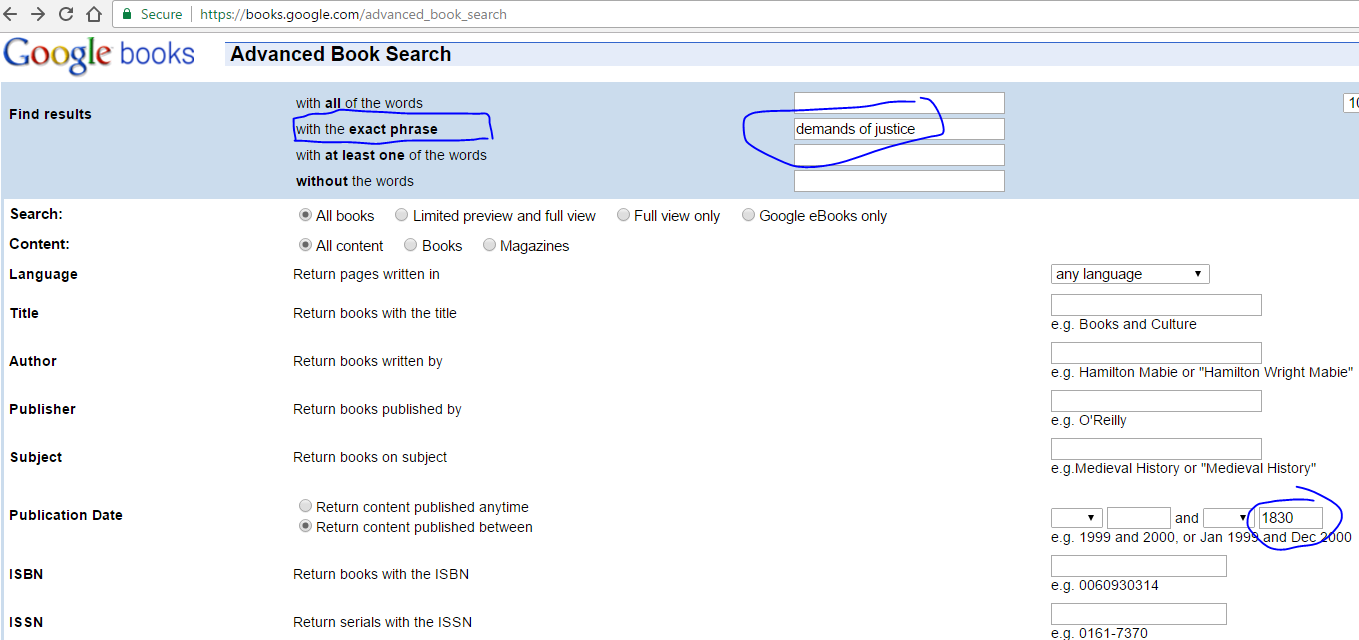Illuminating confusing Book of Mormon passages with 19th century works

In my most recent podcast episode Book of Mormon content, which focuses on modern theological content in the Book of Mormon, I point out a couple instances where study of 19th century works help illuminate confusing passages in the Book of Mormon.
The first one is from Daniel McClellan. Daniel wanted to understand how to translate the scripture 2 Ne 25:23
23 For we labor diligently to write, to our children, and also our brethren, to believe in Christ, and to be reconciled to God; for we know that it is by that we are saved, after all we can .
This has been interpreted as a works scripture. Grace comes in only ‘after all we can do’, with the emphasis that we must do our part. Stephen Robinson argued in the 1990’s that the phrase ‘after all we can do’ should be considered ironic or in exasperation, ie it should be read ‘in spite of all we can do’, meaning that we can’t do very much, and that this is a grace scripture.
Daniel McClellan searched literary works in Joseph Smith’s day and found over 10 times this is used, all in the same way Brother Robinson wanted us to understand. A couple examples:
‘The reason is, they have no desire for that in which holiness consists; the fountain still remains corrupt. And after all they can do, without this Divine influence on the heart, they remain utterly unprepared for the kingdom of heaven.’
– The Evangelical Magazine, vol. II, 1834, pp. 493–94
‘Here there is an evident misstatement; there is no merit in the performance of the conditions; after all we can do we are unprofitable servants, the performance of any condition can no more obtain for us eternal life than our own natural strength can move the universe; eternal life is the free gift of God.’
– William Brudenell Barter, Observations on a Work by Mr. Bickersteth, 1836, p. 17
See his facebook post showing this documentation here. https://www.facebook.com/rob.terry.church.is.true/posts/628284740849766
Another example I noticed is when I searched a phrase from Alma 13:3.
3 And this is the manner after which they were ordained—being called and prepared from the foundation of the world according to the foreknowledge of God, on account of their exceeding faith and good works; in the first place being left to choose good or evil; therefore they having chosen good, and exercising exceedingly great faith, are called with a holy calling, yea, with that holy calling which was prepared with, and according to, a preparatory redemption for such.
Brother Tad Callister has recently pointed out this verse is teaching about the LDS concept of pre-Earth life. I disagree with this opinion and did some research, like Daniel McClellan did, to see if I could find anything. I found this quote from a sermon from Massachusetts in 1828 by Jacob Wood quoting John Wesley.
The celebrated John Wesley a distinguished opposer of Calvinism and advocate of Arminian principles has given us a plain statement of this subject in his Sermon on Predestination. He says The scripture tells us plainly what predestination is it is God’s fore appointing obedient believers to salvation not without but according to his fore knowledge of all their works from the foundation of the world. And so likewise he predestinates or fore appoints all disobedient unbelievers to damnation not without but according to his fore knowledge of all their works from the foundation of the world. We may consider this a little farther. God from the foundation of the world fore knew all men’s believing or not believing And according to this his fore knowledge he chose or elected all obedient believers as such to salvation and refused or reprobated all disobedient unbelievers as such to damnation. Thus the scriptures teach us to consider election and reprobation according to the fore knowledge of God from the foundation of the world
It’s quite clear to me, based on the the same context and the same phraseology (according to God’s foreknowledge from the foundation of the world), that the Book of Mormon is using this same logic. This logic is the Arminian-Wesleyan (remember Joseph Smith was connected to Methodism in his formative years, founded by John Wesley) approach to arguing against the Calvinist view of predestination.
I propose that we can learn more about the Book of Mormon by acknowledging it as 19th century scripture, and analyzing its doctrines and meaning the same way we would explore other 19th century documents.
Try this at home.
Go to google advanced book search. https://books.google.com/advanced_book_search Put in your favorite phrase from the Book of Mormon to see if you can find any other insights into this scripture by analyzing matching hits from the 18th and 19th century.
Try these phrases from an analysis I’ve done previously as a starting point.
temporal death
spiritual death
fallen state
endless torment
abominable church
secret works
probationary state
preparatory state
endless misery
infinite goodness
infinite atonement
redeeming love
carnal state
plan of redemption
chains of hell
demands of justice
temporally and spiritually
retained in remembrance
bowels of mercy
can in nowise inherit
racked with eternal torment
state of endless misery
infinite and eternal sacrifice
mercy claimeth the penitent
eternal plan of redemption
mankind must unavoidably perish
all mankind becoming carnal